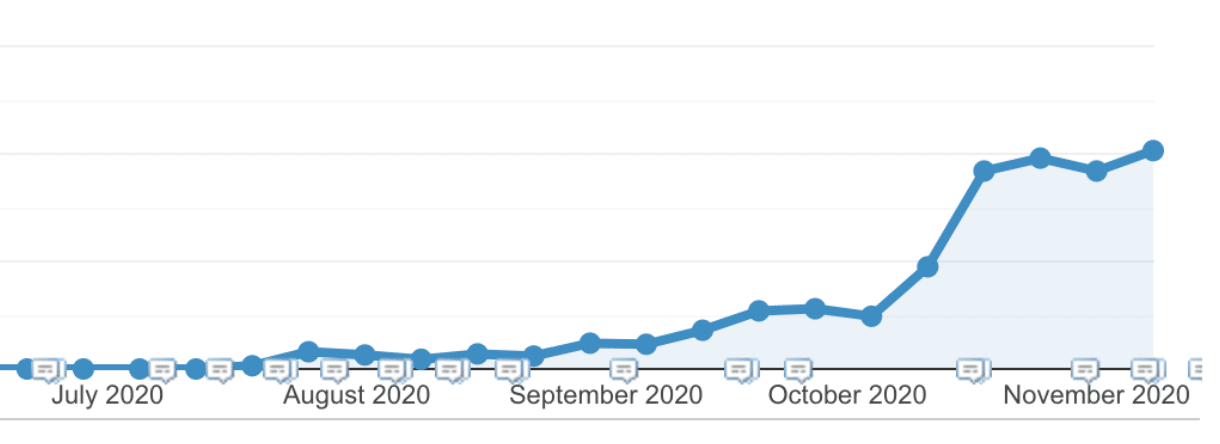How SEO and Search Ads Can Work Together
A lot of marketers have this general idea that everything under Search Engine Marketing (SEM) is closely related. After all, the Organic Search results appear on the same Google result page as the ads. And they’re both working with keywords all day, right?
But there are a lot of differences, too. Try getting your Ads team to care about backlinks or technical SEO for example. And there’s always the pervasive myth that “paying for Google ads makes your organic rankings increase.”
Differences aside, the fact is both SEO and paid search ads teams are trying to achieve the same high-level goal: Match search engine users up with content that will serve their needs.
So there’s a lot we can do to ensure SEO and Search Ads are working well together. But it’s not as simple as “let’s put these two teams together and see what they come up with.” Without clear direction, that approach is likely to result in a nice meeting but produce nothing of real value.
As an SEO Consultant, my job is to provide as much value as possible to my clients. So to avoid wasted effort, I’ve developed a list of ways marketers can aim for alignment between their SEO and Search Ads efforts. And if you’re looking for more SEO writing, I’ve got plenty of that too. Let’s dig in.
Cover the SERPs
First things first, you should have your SEO and Ads teams put their keyword lists together and see if either team can share important keywords with the other. Odds are, neither team’s keyword targets are 100% up to date (if they are, I would suggest they are not busy enough!). But it’s probably also true that each team may be able to share several target keywords or topics with the other. This can ensure full alignment for priority keywords, giving your brand a better chance of occupying more shelf space on the Search Engine Result Pages (SERPs). That, in turn, can improve clickthrough rates, and push competition down the SERP, and establish better brand marketing and authority.
Share New and Trending Keywords
Since Organic Search tends to favor informational content, your SEO team is likely focusing more on top-funnel assets. Your Ads team is probably focused on lower-funnel assets that are more likely to convert in the short term. Both teams can share new/trending keywords outside of the normal ad platform or keyword tool suggestions.
Collaborate to Boost Conversion
SEO teams can leverage paid keyword data to discover more long-tail queries that drive conversions.
Long-tail keywords get less search traffic, but they’re usually easier to rank for with an SEO play. Plus, they may have a higher conversion value since they’re more specific. Your SEO team should be able to estimate the value of creating content to target those queries, earning some free clicks for keywords you’d otherwise have to pay for.
Giving SEO Content a Paid Boost
While time-to-market has improved vastly for SEO content, it’s still true that it can take months for a piece of organic content to reach its full potential.
Ads can help here by driving traffic to new or important assets where SEO can’t rank as quickly.
Ad Copy Can Inform Meta Descriptions
This one’s simple. Your Ads team can share top-performing creative to inform SEO meta descriptions. By leveraging creativity that is proven to work, you can improve CTR for your organic assets, too.

Conversation Starters
Here are a few questions you can share with your SEO and paid Ads teams to get the conversations going:
- What is your budget?
- How is that allocated?
- What are your keyword groupings?
- What pages are you sending traffic to?
- How often do you review your search terms report to identify new keyword opportunities?
- Are your bids automated?
- What are your keyword bids optimizing for?
- What are your bid modifiers?
- Any geo-specific optimizations?
- Working with the Google team for optimization?
- What is the cadence of optimization of keywords and copy to improve the quality score? And what’s involved?
Being Realistic
Following this advice should demonstrate how SEO and Search Ads can work together. While it’s not a given that your SEO and Ads teams can help each other out, you can help make it much more likely by providing some structure for them to work from. Setting clear expectations and providing a guide like this one can improve the chances that everything you learn from your SEO program can inform your Search Ads program and vice versa.





